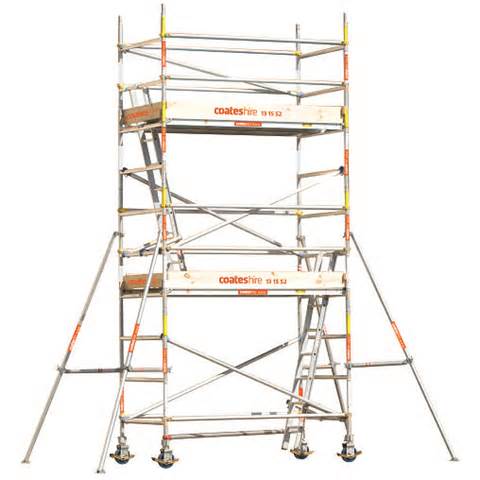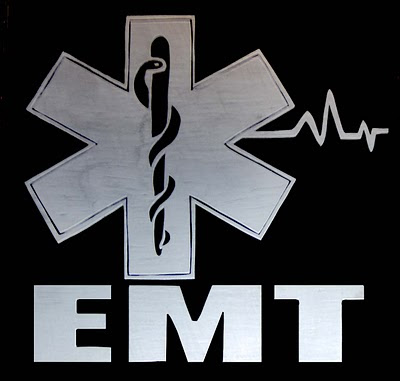I’d like to bear my testimony that I know my hammer is true. It is straight, it is balanced and in my hand, it does what I need it to do. Usually. It has smashed several of my fingers, or rather, I have smashed several of my fingers with it. I have unintentionally broken many things with it and left unsightly marks on things that I didn’t intend to mar. I have also broken a lot of stuff intentionally. It’s not the only hammer I own, I have a dozen or so. Some are bigger, with a waffle head for framing, some have solid steel shanks, some have fiberglass, some wood. I have a really big one, a sledge, for breaking up concrete and convincing stubborn boards to move. I’ve owned quite a few over the years, some I’ve lost and some I’ve broken. We have quite a history. My favorite is a 16 oz. steel shank finish hammer with a smooth head. I don’t drive many nails with it, but it’s great for tapping a chisel, adjusting a doorjamb or pulling a stray finish nail. I say it is true, because it exists in reality, it is straight and balanced and it conforms to the general standards for hammers. These conditions make it useful to me.
When it comes down to it, most disagreements about truth come down to misunderstandings about definitions, and there are many. If I make a claim about truth I’d better know, and communicate which definition I intend. Do I mean that my claim describes:
1. The true and actual state of matter?
2. An indisputable, verified fact?
3. Conformity with reality?
4. The actuality of existence?
5. An obvious or accepted fact?
6. Honesty?
7. Agreement with a standard?
8. Accuracy? Or
9. Fidelity?
That’s quite a wide range of meaning and there are more, subtle and nuanced definitions you could throw in there.
If I say a wall is true, I mean that it is plumb and square to the floor and that it meets adjoining surfaces at regular angles. That’s what I’m trying to communicate with my declaration. There are other definitions of “true” that will fit, but they aren’t relevant.
In Arthur Conan Doyle’s first Sherlock Holmes novel, “A Study in Scarlet”, Doctor Watson discovers that Holmes, though highly intelligent, is completely ignorant of the fact that the Earth revolves around the Sun. Sherlock laughs at Watson’s surprise and then explains: “
“You see,” he explained, “I consider that a man’s brain originally is like a little empty attic, and you have to stock it with such furniture as you choose. A fool takes in all the lumber of every sort that he comes across, so that the knowledge which might be useful to him gets crowded out, or at best is jumbled up with a lot of other things so that he has a difficulty in laying his hands upon it. Now the skillful workman is very careful indeed as to what he takes into his brain-attic. He will have nothing but the tools which may help him in doing his work, but of these he has a large assortment, and all in the most perfect order. It is a mistake to think that that little room has elastic walls and can distend to any extent. Depend upon it there comes a time when for every addition of knowledge you forget something that you knew before. It is of the highest importance, therefore, not to have useless facts elbowing out the useful ones.”
“But the Solar System!” I protested.
“What the deuce is it to me?” he interrupted impatiently; “you say that we go round the sun. If we went round the moon it would not make a pennyworth of difference to me or to my work.”

For Holmes, Truth was not the measure of value, but Relevance was. He rightly asks “how does it affect my current pursuit?” The thirst for knowledge is as old as cognitive thought but we cannot reasonably expect to learn everything there is to know about any given subject, let alone everything. We’ve got to have some criteria to determine what to pursue. We can measure the value of truth by asking: “does it, will it, can it alter my lifestyle/ worldview/ decision-making process?”
So how can we apply the criteria for determining truth and relevance to the church? That depends, largely on our understanding of what “The Church” is. If I’m talking about a church building, then measurements of plumb, square, and level apply. But if I judge it for relevance, then it is true in relation to how well it performs its intended function. Church buildings are static, they can’t perform anything, so I really mean to ask how easy it is for the people who use it to achieve the intended benefit? A church building is an assemblage of materials, designed to provide shelter, protection, comfort and privacy to its users. By those criteria, Mormon churches are true. A church is, essentially, a physical system, just as the organization is a system. A system of ideas, practices and information, mainly intended to support individual spiritual pursuit. Some say that it is dictated by God but I suspect that it is designed by humans, under inspiration (mostly) and ratified by God who allows mistakes and imperfections as part of the process.
Sometimes, when I need to work on something that is above my reach, I use a scaffold. Scaffolding is a modular, structural system. It is made up of individually strong elements that can go together in a variety of ways to support workers, materials and equipment at whatever level is needed. It includes rails, anchors and outriggers for safety, wheels for mobility and ladders for climbing up or down. There are many different kinds of contractors who use scaffolding, so when I’m using it I may notice the evidence of previous use; paint spills, stucco, dings and scrapes, cut marks, screws and nails in the planks. I really don’t care much about that stuff, it’s not relevant to my current use of the scaffolding as long as it doesn’t threaten the structural integrity. What I really care about is: was it set up properly? And has it been tested and approved by OSHA? (Do I trust OSHA?) If it meets those criteria, I know the scaffolding is true. When I’m finished with what I’m working on, I take the scaffolding down and put it away. Of course the scaffolding needs to be maintained and set up properly in order to be useful and it would be ridiculous for me to decide to live on it or hold meetings on it. The scaffolding is not “The Thing”.

My wife is an EMT. She loves it and is very passionate about it. Her licensing requires continuing education. Medical technology changes quickly. During her time as an EMT the recommended technique for the administration of CPR has changed several times. Imaging technology has changed the way doctors diagnose and treat head injuries. Although doctors do the best they can with what they know, developments in research often preclude what they once “knew”. Does that mean that current knowledge is more true? If so, what does that say about future discoveries?

Many of the people she is called to treat are suffering heart attacks and other forms of heart distress. In order to help them, she has a good general knowledge of the heart and how it works. She knows how to stabilize someone who is experiencing tachycardia, arrhythmia, cardiac arrest and even myocardial infarction. But she isn’t a cardiologist. She administers treatment quickly and transports her patient to a hospital with emergency doctors and cardiologists who take it from there. She knows enough to do her part. The more she learns about, and understands the human heart, the better she is able to treat her patients. Up to a certain point. Beyond that point, new knowledge about the heart is not useful for emergency treatment. It will be useful if she pursues a profession that deals with advanced heart treatment but, for emergency medicine, that extra knowledge may even be distracting.
I’ve heard an analogy, which compares the Church to a light bulb. A light bulb is, essentially, a system which includes the individual elements; glass, tungsten, aluminum, brass and argon gas. These elements are assembled in very particular relationships. The analogy seeks to demonstrate the effects of the great apostasy, which I will compare to my 16 oz. steel shank smooth head finish hammer, which breaks the bulb. All the elements are still there, (except the argon which we might say represents authority but that’s a different discussion) but the broken bulb is no longer useful for it’s original, purpose. The relationships between the parts are what ensures the intended function. In fact, the smallest change in those relationships; a broken filament or a crack in the glass will render it useless. (Unless you’re trying to slow down a bare-footed pursuer) By this reasoning, only an intact bulb is true.

Not all systems are as fragile as our light bulb. Some can be repaired and restored to true, like a car, which also depends on specific relationships to function. If a tire goes flat, the car is much less useful, but the tire can be replaced or repaired. Some things are more flexible and allow a wider definition of truth. A river, for instance, can deviate completely from its course and still perform its expected function even if that deviation causes mayhem. In each of these cases the truth can only be understood when the definitions and conditions are also understood. Some may claim universal truth like “The Sun always rises in the East” but even that claim is dependent on conditions in our solar system, and on the planet Earth although it’s a fairly safe assumption that for the sake of whatever argument is being made, the claim is true enough.
The assertion that The Church is true requires a much more complex understanding. One must first understand the system of ideas and relationships that the word: “Church” represents. That includes a personal idea of God, (which is incredibly complex by itself!) a concept of ones individual relationship with the organization and how the whole thing fits into the culture. The unique personalities of the other people who are also participating in the system of the Church further complicate the issue.
In the Bible, the word truth is translated from the Greek word “Aletheia” which means: “unconcealed”. Relevant information is unconcealed to us when we discover it through study and learning. Jesus said:
“…if ye continue in my word, then are ye my disciples indeed; and ye shall know the truth and the truth shall make you free.” –John 8:31,32
But the simple knowing of a fact doesn’t hold the key to freedom. Understanding the context from which it is asserted and to which it may be applied is critical in determining relevance. (Remember Sherlock?) I suspect that’s what Jacob was talking about when he said:
“….the Spirit speaketh the truth and lieth not. Wherefore, it speaketh of things as they really are, and of things as they really will be; wherefore, these things are manifested unto us plainly, for the salvation of our souls. But behold, we are not witnesses alone in these things; for God also spake them unto prophets of old.
But behold, the Jews were a stiffnecked people; and they despised the words of plainness, and killed the prophets, and sought for things that they could not understand. Wherefore, because of their blindness, which blindness came by looking beyond the mark, they must needs fall; for God hath taken away his plainness from them, and delivered unto them many things which they cannot understand, because they desired it.” –Jacob 4: 13,14
We may say that the Church is true relative to each individuals experience with the organization. The body of information that the organization supports (The Gospel) is also dependent on the same criteria. If my experience with the Church, it’s culture, principles and practices, aligns with my expectations, then I will probably say that it is true. I may develop my expectations through study and personal inspiration or I may simply accept the expectations that are packaged and handed to me. Each of these decisions will have a direct impact on my perception of truth, however, the “packaged” option will only carry so far. Those who do the work of discovery will have a much more difficult, yet ultimately more rewarding experience. We are promised that:
“…my grace shall attend you, that you may be instructed more perfectly in theory, in principle, in doctrine, in the law of the gospel, in all things that pertain unto the kingdom of God, that are expedient for you to understand; Of things both in heaven and in the earth, and under the earth; things which have been, things which are, things which must shortly come to pass; things which are at home, things which are abroad; the wars and the perplexities of the nations, and the judgments which are on the land; and a knowledge also of countries and of kingdoms—
That ye may be prepared in all things…” -D&C 88:78-80
So when someone declares that they know the Church is true, we trust that their experience has taught them to believe it. We don’t get to contradict them because the experiences which compel such a declaration are personal and emotional and we haven’t had their experience. Likewise, they don’t get to declare that their experiences are true for us, we’ve got to come up with our own. Truth is meaningless without them.





I don’t trust people’s experience for the simple reason we are all plagued by confirmation bias.
http://www.thetabernacles.com/home/beyond-a-shadow-of-doubt-the-curse-of-confirmation-bias
Great write up and point Daniel.